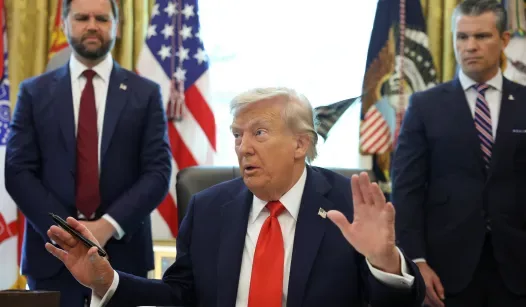In a bold move, President Donald Trump has threatened to deploy the National Guard to Chicago, a decision that has sparked significant discussion and concern. By choosing this specific city as his focal point, Trump has not only highlighted his approach to governance but also personalized the political landscape in a way that resonates with his supporters while drawing criticism from opponents.
Chicago, a city often in the spotlight for its challenges related to crime and governance, has become a symbol in Trump’s narrative. By freezing the city in the public eye, he aims to underscore what he perceives as failures in local leadership and law enforcement. This tactic serves multiple purposes: it draws attention to his administration’s commitment to law and order, reinforces his image as a decisive leader, and shifts the national conversation toward issues that align with his political agenda.
The implications of such a move are far-reaching. For one, it raises questions about federal versus state authority and the role of the National Guard in domestic issues. Historically, the deployment of the National Guard has been a contentious topic, often seen as a last resort in times of civil unrest or natural disasters. Trump’s willingness to invoke this measure in a major U.S. city reflects a broader strategy of using federal power to influence local matters, a tactic that could set a precedent for future administrations.
Critics argue that this approach may exacerbate tensions rather than alleviate them. By framing the situation in Chicago as a crisis requiring federal intervention, Trump risks alienating local leaders and communities who may feel their autonomy is being undermined. Moreover, this tactic can lead to further polarization, as it pits federal authority against local governance, creating an environment ripe for conflict rather than collaboration.
Supporters, however, may view this as a necessary step to restore order and safety. For many, the image of federal troops in the streets signals a strong response to what they perceive as a breakdown in law and order. This narrative plays well with Trump’s base, who have rallied around his promises to prioritize safety and security in urban areas.
As the political landscape continues to evolve, it will be essential to monitor how these tactics impact public perception and policy. The situation in Chicago is emblematic of broader national issues, including crime rates, policing practices, and community relations. How Trump’s administration navigates these challenges will likely influence the political discourse leading up to the next election cycle.
In summary, Trump’s threat to deploy the National Guard to Chicago serves as a powerful illustration of his political strategy. By personalizing the issue and framing it as a federal concern, he not only seeks to rally his base but also to reshape the narrative around urban governance in America. As this situation develops, it will be crucial for citizens to engage with these issues critically, considering both the immediate implications and the long-term effects on the fabric of American democracy.
